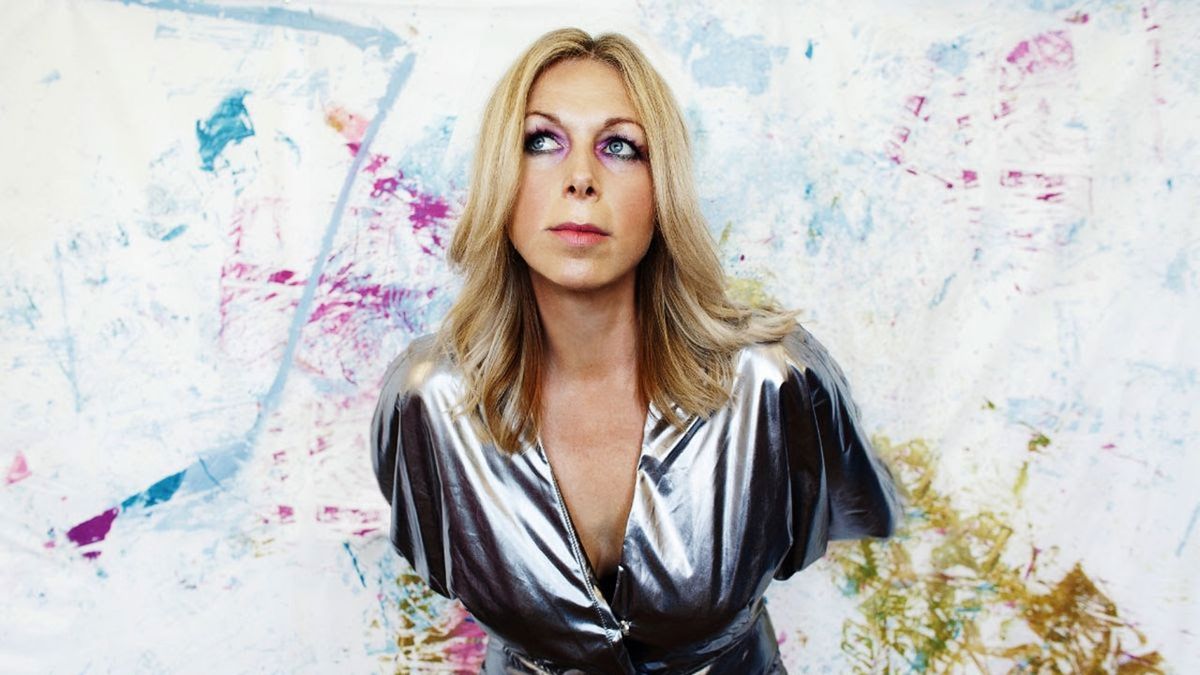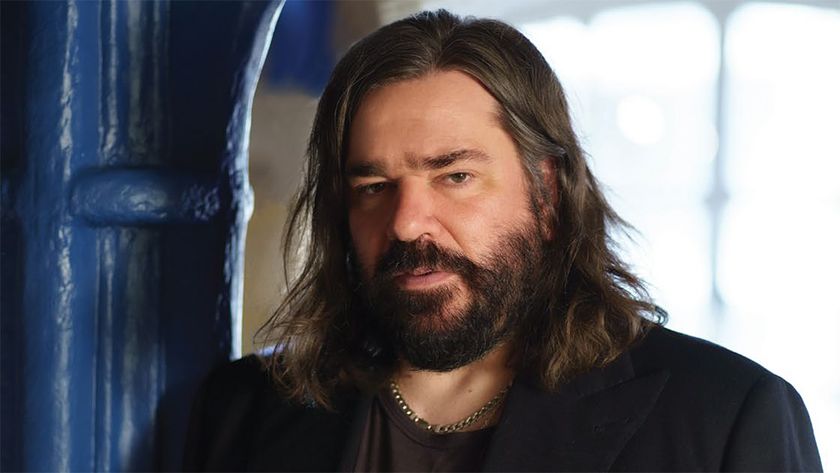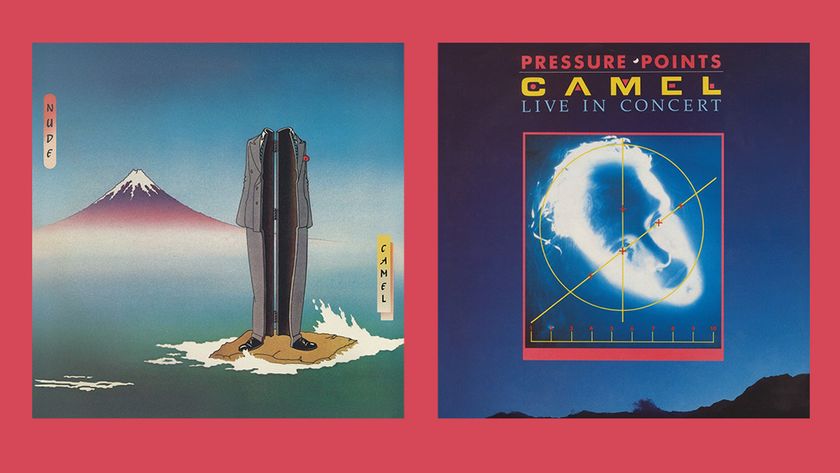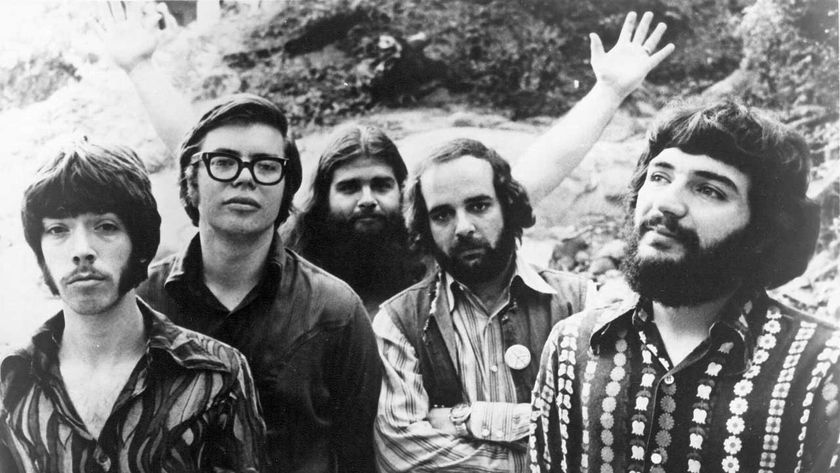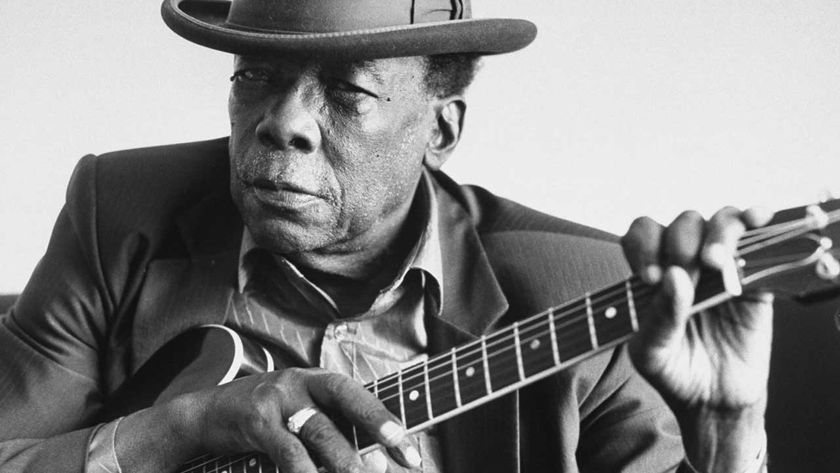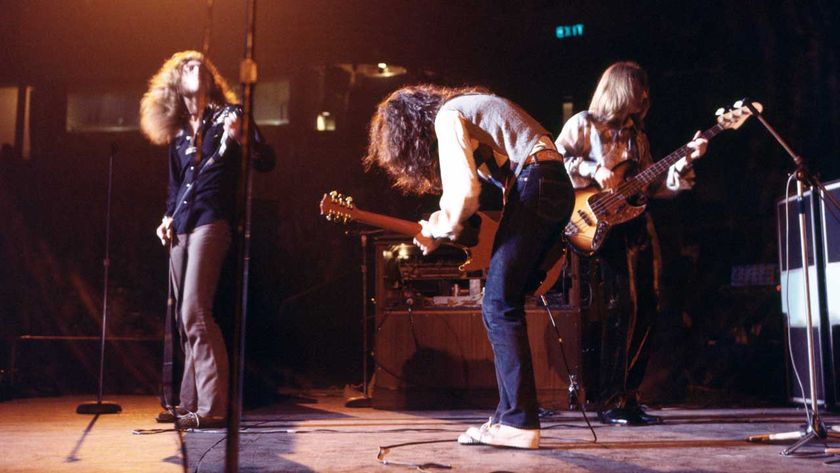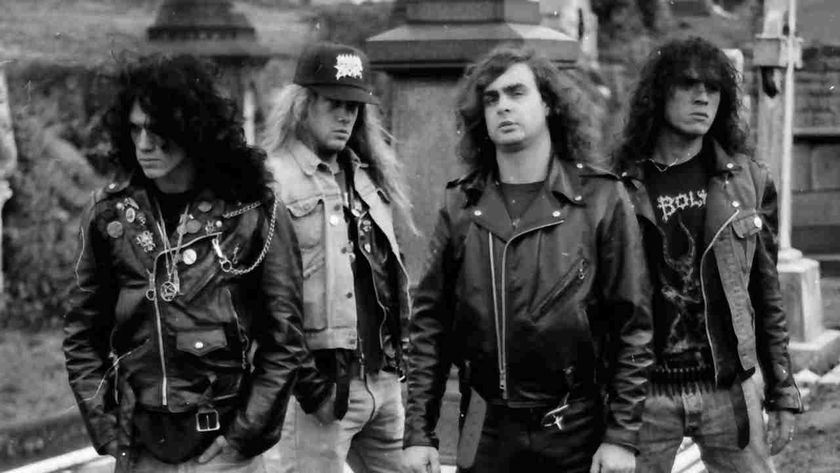If our lord and saviour Steven Wilson has taught us anything in recent times, it’s that pop music is nothing to be scared of. The history of pop is liberally strewn with artists who pursued a progressive path, whether overt or otherwise. Similarly, progressive rock has always had room for a catchy melody.
Despite an increasingly impressive catalogue that proclaims a devotion to everything from wistful, acoustic folk to skull-rattling space rock, Jane Weaver is also a huge fan of pop. It’s a fact that her 2021 album, Flock, screams from the rooftops, albeit accompanied by plenty of the psychedelic songwriter’s trademark rushes of modular synth. A snappy and shiny collection of absurdly memorable pop earworms, Flock eschews the trippy meanderings of 2019’s Loops In The Secret Society and its cosmic antecedents Modern Kosmology and The Silver Globe. Instead, it conjures an uplifting and futuristic vision of pop, wherein the magic of the pop music that Weaver grew up listening to is reimagined with all the dazzling sonic colours of the modern age. Speaking to Prog, Weaver explains how childhood musical memories have informed her progress as an artist to this day.
“When I was little there were a lot of music shows on TV, or at least there seemed to be,” she says. “I must have been quite young, because I remember I had brown corduroy dungarees on and I was playing a Bontempi organ in front of the TV, trying to play along with Tubeway Army! So that’s an important early memory, of watching Top Of The Pops, which was everything and anything, a massive all-encompassing show. You know that song Twilight Café by Susan Fassbender? Well, it was a huge hit [in 1981], and sadly she killed herself in her 30s, but I just remember that kind of electronic pop sound, and there was glam and disco, too. It was such a mixed bag at that time, and I’m quite happy to have grown up in that era.”
Having moved away from her early musical endeavours with indie rock bands and then, as a solo artist in a more folk-orientated domain, Jane Weaver has now firmly established herself as one of modern psychedelia’s finest and most idiosyncratic exponents. As a result, her version of pop music is every bit as singular as longtime fans may expect. But while the magical sounds of 70s pop may not have been employed in a particularly direct or obvious way on the irresistibly catchy likes of Heartlow and Sunset Dreams, anyone who lived through the era when ABBA and ELO were seemingly always on the radio and television will definitely spot a few telling references here and there.
“Yeah, yeah, for sure!” says Weaver, sounding delighted. “[I had a] friend, who lived across the road, we’d hang out in her bedroom. Her brothers were 10 years older than us so we’d go and look through all their LPs and it was always ELO, and Pink Floyd too. The boys were rockers and they had cut-off denims with patches on them, and they were kinda nerdy middle-class boys but they had good records! [Laughs.] I just used to look all the artwork on those sleeves and think, ‘This is amazing!’”
One thing that Flock hammers home with haughty flourish is that pop music is often at its best when it’s also fairly weird. Fittingly, Weaver cites Kate Bush as the most important influence on her life as a musician and music fan, noting the enduring power of a love established in childhood and how, particularly during troubled times, that initial spark of inspiration still drives her forward.
“It always goes back to Kate Bush and The Kick Inside,” she says. “Hearing it for the first time was a crazy ‘Woah!’ moment. Whenever I’m in a deep funk and I don’t know what to do, I always go back to that initial inspiration. I think, ‘Remember that you wanted to do this because of when you saw Kate Bush on Top Of The Pops…’ So that’s my reminder, I think of that initial ‘Wow’ moment and that keeps me on the straight and narrow.”
Although still recognisably Weaver’s work, Flock is an unquestionable change of pace and tone. In stark contrast with the metaphorical opacity of Modern Kosmology, the new songs’ musical simplicity is very nearly matched by the directness of their lyrics. We’re still a long way from a full confessional here, but Flock seems to be a more personal and intimate work than anything Weaver has done since embracing psychedelia and synths on The Fallen By Watch Bird a decade ago.
“Yeah, since around 2010 when I did The Fallen By Watch Bird, everything has been conceptual and each album is about a thing or a subject that isn’t necessarily to do with me, even though I’m always in there lyrically, somewhere. I find it easy to talk about other subjects and explore particular worlds, as if it’s a study. I go into that zone and it’s all marvellous, but this time I thought I should try to do something different and make a collection of pop songs that don’t necessarily all fit within a particular genre. They’re all linked together, obviously, because it’s me.”
It’s quite impressive that it all hangs together so well, despite being so different from previous records. One track, Solarised, even sounds like Kylie Minogue, in the best way possible.
“Yeah, it’s so weird! That was one of those songs that I keep writing in my head. I was thinking, ‘I really should do that song’ because it won’t go away and keeps popping up. ‘Remember me!’ So that’s why I did that one. It’s from a different angle, writing metaphorically about my experiences and what’s going on in my life. It’s pretty uncomfortable, really. Not that my life’s uncomfortable, but it’s strange to be writing about myself and not somebody much cooler.”
Perhaps more in keeping with Weaver’s burgeoning reputation as a psychedelic soothsayer, recent single The Revolution Of Super Visions stands out as the new album’s most lyrically lysergic moment. Ostensibly about changing the world via the means of communal thought and will, it’s also an extremely poignant glimpse into Weaver’s worldview, and her understandable frustration at the dismal state of things in 2021.
“Oh yeah, it’s definitely coloured by all of that. I guess since 2016 there’s been that feeling of being unable to make an impact or not being in control of what’s happening in society,” she sighs. “Obviously I believe in community and people power, but some things are simply not working, so I was trying to think of a supernatural way to get around it. If we all think the same thing, therefore the thing happens! Because attempts to do things legitimately are often just brushed under the carpet. I just hate unfairness and inequality, so that’s my bright idea. Something needs to happen, even if it’s supernatural!”
Now that she’s mastered progressive pop, Jane Weaver’s next move promises to be fascinating. She already has a wide-ranging remit earned through her diverse catalogue and through other projects, ambient pop soundtrack unit Fenella (featuring Peter Philipson and Raz Ullah from Weaver’s live band) included. But confronted with the idea of making, you know, more of the same, she recoils in mock horror.
“Well, I honestly don’t know what I’ll do next,” she chuckles. “I think that one of the things I’ve gleaned from being a bit of an outsider and being an independent artist since I was 16, is that I try not to hold myself to anything. If the next album is a space rock album, fair enough! Or if I do an R’n’B album or a NWOBHM album, that’s fine too. I just like a lot of different kinds of music. There are certain things I’m not that bothered about, but who knows? Making this album was great but anything can happen.”
Like everybody else, Jane Weaver’s plans to take Flock on the road have been thrown into (hopefully temporary) disarray. Fortunately, she’s been a master of DIY resourcefulness for a long time, and has purposefully stayed away from the mainstream music industry. As a result, while she admits to still suffering financially in the current climate, Weaver is philosophical about the way forward.
“I’ve only been playing shows for the last five years properly anyway, so all of that is relatively new to me,” she notes. “Any independent success I’ve had has been recent, and now I’m 48, you know? But when I was 19 [as a member of indie rock band Kill Laura], I did get a deal and it was on an independent label, through a major, and we got a publishing deal as well. So I started off in that world, of how record labels work, and I saw the horrible side of it. We recorded an album, our A&R guy got sacked and then we got shelved. Then it was like, ‘You know those songs that you recorded, well you’re not allowed to release them unless you pay us…’ So I knew early on about the cruelty of the music industry and how it chews people up and spits them out.”
Too full of ideas to let a lack of gigs get in her way, Weaver is already working on a variety of future projects. With a home studio setup for “fairly crappy demos” and the studio that she uses to record albums “just ’round the corner”, she’s making the most of lockdown to do a lot more of what she loves best. Whether it be razor-sharp psych-pop or some colossal space rock symphony, Jane Weaver’s next move promises to be unique, fascinating and created entirely on her own terms.
“The pandemic situation is definitely bringing the hustler out of us all, musicians and artists,” she concludes. “Up until the point when it becomes clear what we can actually do, I’m going to keep on writing. I’ve got a naïve, childish optimism sometimes. I’ve spent a lot of my life staring out of windows and daydreaming, instead of concentrating, so I think that part of my personality is very helpful in a crisis. I’m always optimistic!”
This article originally appeared in Prog 118.
